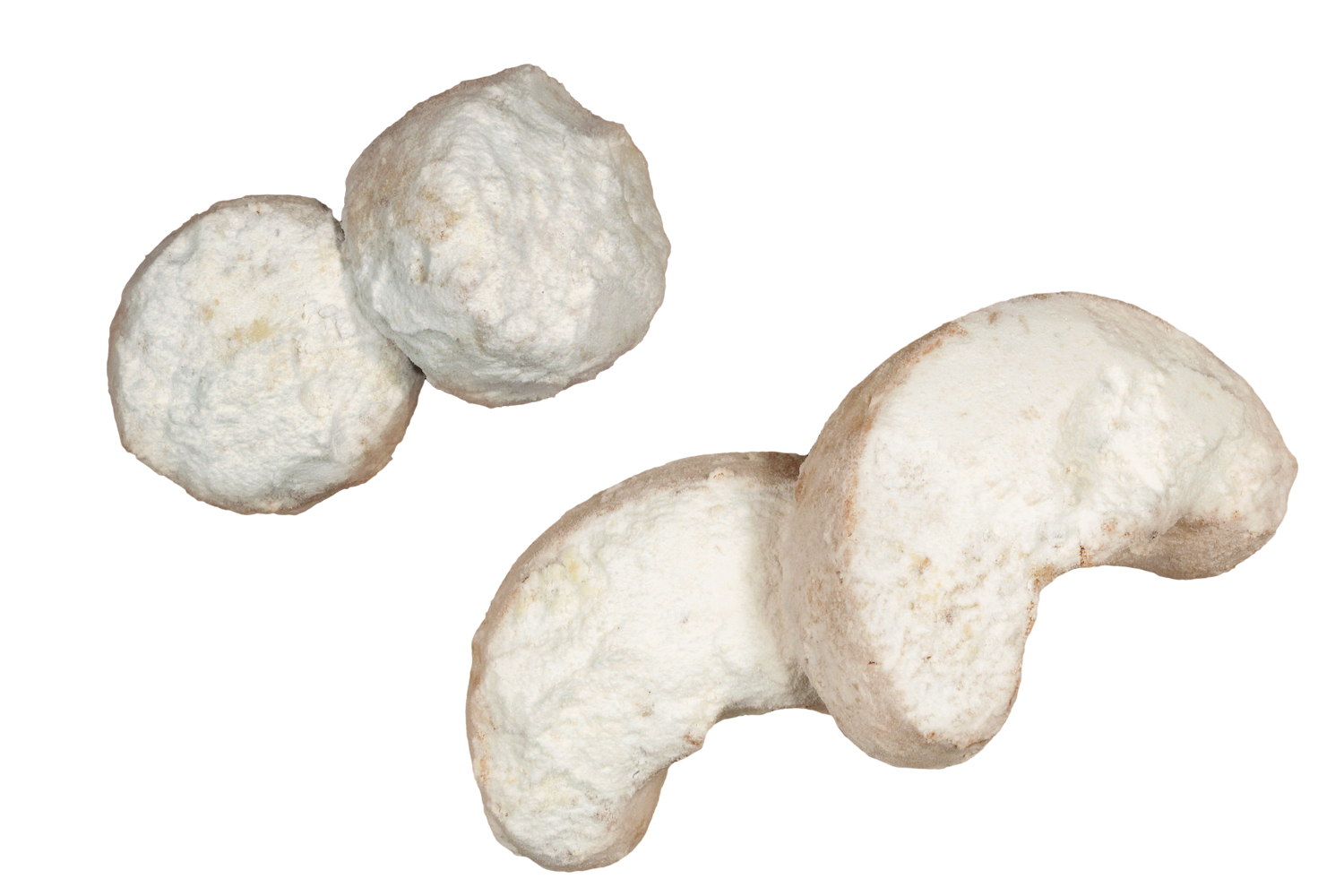Project Description
CHRISTMAS SNOWBALL COOKIES
In Greece a snowball cookie is called ‘kourambies’. The word originates from Qurabiya in Azeri, Kurabiye in Turkish and Kourambies in Greek. If it is broken down in its two parts, it means “kuru” which literally means dry and “biye” which translates to biscuit.
So, essentially kourambies is a type of dry biscuit. However, the word biscuit (originated etymologically from Latin bis-cuit, meaning baked twice), was established around the middle ages. In Greek the same method was described with the word “dipyron”, a baking
technique that prevented bread from going bad. This method served mainly soldiers or seamen who were away and needed food.
In the contemporary Italian language the word is biscotto (the word cookie has Flamand/Dutch origins that entered the English language). Venetian merchants spread the Latin word bis-cuit also in Asia, where the alteration biya/biye dominated and was linked to Qura/Kuru (dry) giving this way two new oriental words (Qurabiya/ Kurabiye). These words were later on reintroduced in the West resulting to the Hellenized word “kourabies”. Greek people make these biscuits with sugar and almonds every year at Christmas time.
Collected data and etymological roots are by Dimitris Stathakopoulos, Professor of Historical Sociology, Panteion University, Athens
| Nutrition facts | Per 100g | Per item 20g |
| Energy | 2096kJ / 501kcal | 419kJ / 100kcal |
| Fats Saturated |
29,8g 7,82g |
5,96g 1,56g |
| Carbohydrates Sugars |
49,3g 5,91g |
9,86g 1,18g |
| Dietary fiber | 2,34g | 0,46g |
| Proteins | 6,44g | 1,28g |
| Salt | 0,01g | 0,00g |


